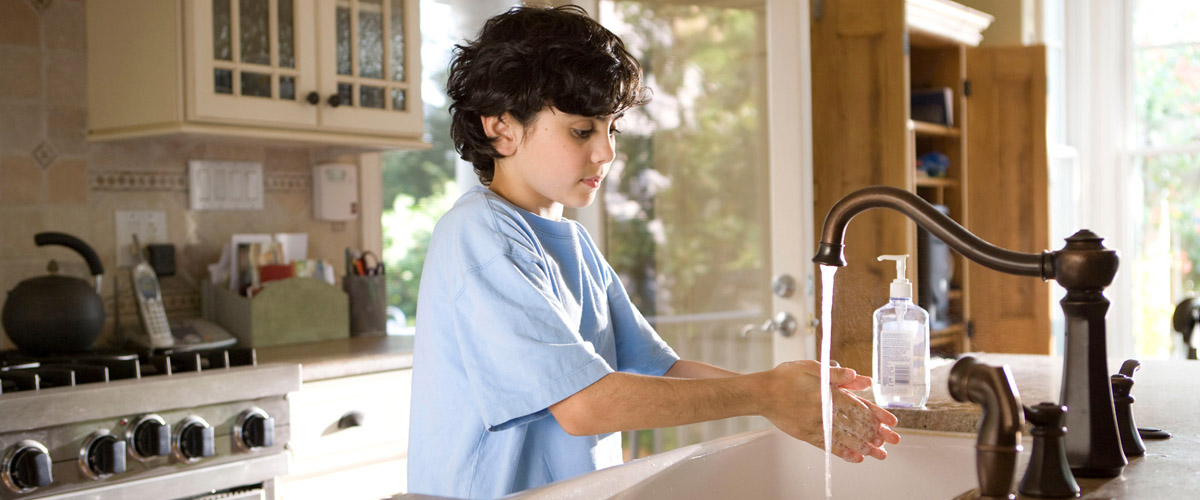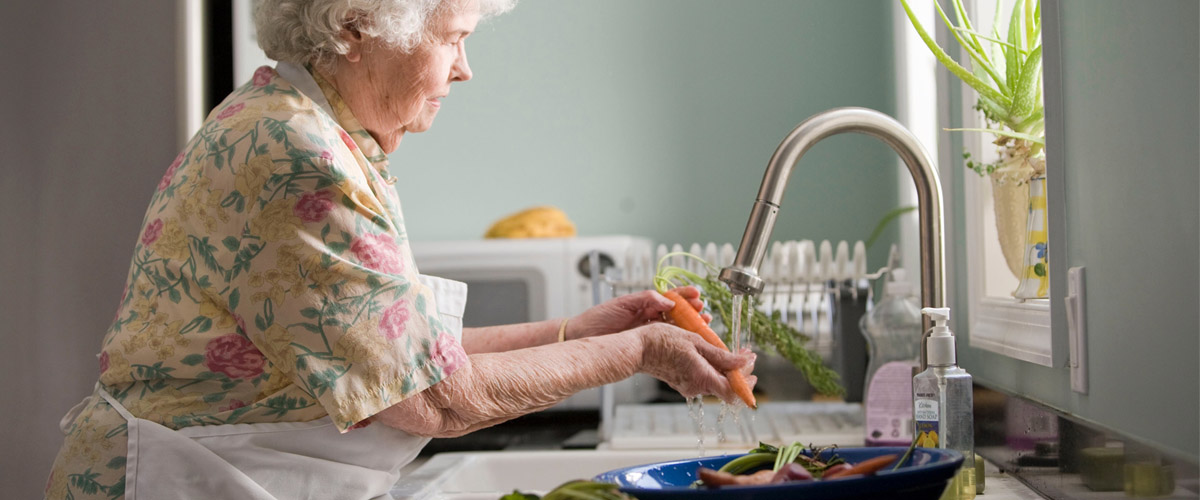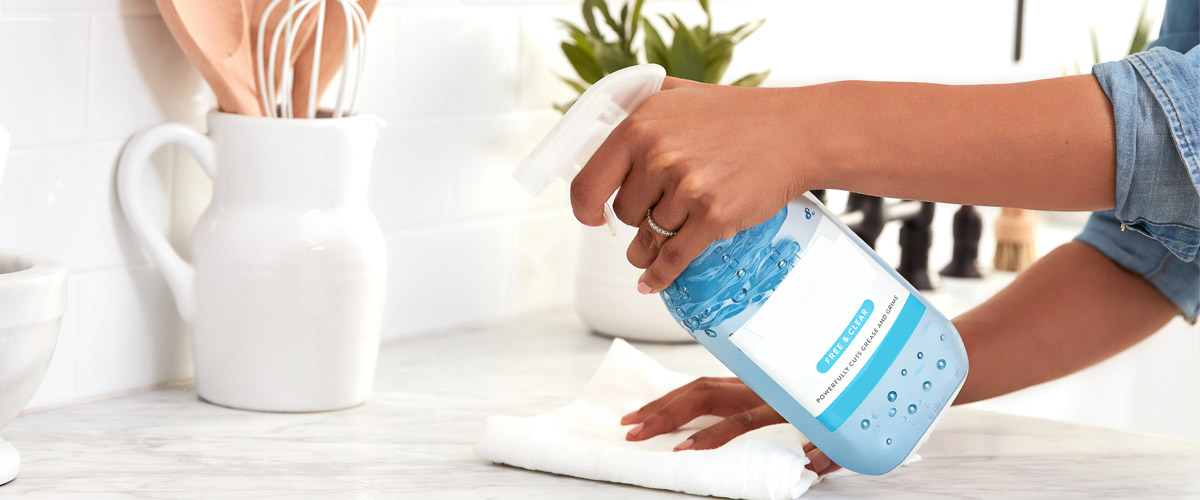Hygiene and Sanitation
Communications media such as the TV and radio as well as the social media outlets have been talking a lot about the necessity of personal hygiene in connection with the Corona Virus pandemic. Constant hand-washing, wearing face masks and being more aware of personal hygiene such as taking daily showers have been constantly emphasized. Preventing the bacteria or viruses from spreading by abstaining from participating in events where lots of people congregate such as the church and temple services is advised. Religious leaders have cancelled such services and have advised their faithful to stay at home.
Just take the necessity of hand-washing. Our hands are being used for multifarious functions and we realize how important it is to keep them free of germs and viruses. We prepare food and eat with our hands. At the same time we use our hands to clean ourselves. We handle pets that have
been in and out of our houses, playing and fighting with other animals. Do you know how many infectious organisms they can bring into our homes? In some villages I have seen pigs, dogs, cocks and hens roaming around the houses. They have become household pets sharing our homes. Are we aware of what type of foods these animals like pigs and poultry have eaten? What type of micro-organisms they have gathered and brought into our homes where our babies, children and adults are trying to co-exist with these animals. In situations like this personal hygiene has to go much beyond the so-called "personal hygiene" and "hand washing".
Clean Hands and Bodies
During the SARS and CORONA Virus epidemics health care personnel emphasized to us the importance of hand-washing using soap and water at least before we eat and after using the toilets. Viruses and germs can hide in the creases and nails of our hands for hours. We were even asked not to touch the side rails and handles that are used to open and close doors. The bacteriologists mentions specifically to wash hands for about 20 seconds with soap and water after touching locks, knobs, switches, TV remote controls, cell phones, watches, computers and even desks and tables.
Many germs and viruses can get embedded in our skin while we are working or using public transport or even when we sit on chairs and benches. Your next door neighbor may be carrying tuberculosis bacteria or influenza virus. Daily baths and showers can minimize the chances of our getting bacteria or viruses into us or to our loved ones through our friends, relations and us.
I know a friend who lives in a suburb of Colombo who enjoys the luxury of a daily bath at a well once he goes home from work. We may not be so fortunate. At least many of us have a shower in our homes that could be used to take a decent wash. Some people have the personal shower as a part and parcel of their daily routine. Health care experts advise that daily baths can prevent certain skin infections, dandruff, itching, pimples and rashes, besides getting rid of micro-organisms that we carry around.
They also advise us to use slippers or shoes when walking outside the house. There may be hook worms or other creatures that can enter your body through your feet and between the crevices of your toes. Leaving the footwear that we use at the door of the house is a good habit. Brushing your teeth or at least rinsing your mouth after meals, especially after dinner before you go to bed is a necessary ingredient of basic oral hygiene.
Washing our bed linen and drying them with the pillows under the hot sun at least once a week, is a must. If you have a cough or a regular sneeze it is best to cover your mouth with a disposable tissue or a handkerchief. At least cover your cough or the sneeze with your hand or your elbow. This way you will be doing a big favour to your family and the community by arresting the bacteria or viruses that you are harboring in your mouth or the respiratory system.
Cooking and warming our food adequately before we eat or before serving the members of the family is one of the most important hygienic principles. Half-cooked or rancid food can make people, especially babies and small children mortally ill.
Sanitation in and Around the House
Besides concentrating on the body hygiene we must also concentrate on the sanitation of our house and the property around the house. Sweeping inside and outside the house daily, and washing and cleaning inside the house at least once a week should be an essential sanitary measure that should induce us to keep our living environment clean and germ-free. We must keep an eye on bed bugs, scorpions, centipedes and small or big serpents that could hide in the nooks and corners of our houses.
Keeping the areas around our houses free of stagnant water can help to get rid of mosquito-breeding grounds. When you take the mortality rates of dengue, we should say that it is worse than the mortality rates of SARS or Corona viruses.
Keeping up with the vaccinations to prevent childhood diseases such as diphtheria, whooping cough and tetanus should be meticulously followed. Polio, measles and B.C.G. (anti-Tuberculosis medications) can prevent harmful life-threatening childhood diseases.
Prevention of diseases that threaten the normal life-style of adults as well as children should be easy with proper personal hygiene such as thorough hand-washing or taking regular showers which are two of the most important steps that we can take. Giving essential vaccinations to our children helps in the prevention of diseases that may be life-threatening to them. Keeping our homes and our environments clean can, without doubt, prevent lots of health risks. These simple life-style changes will give you and your family a healthier home and an environment.


